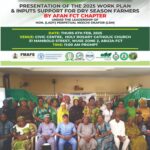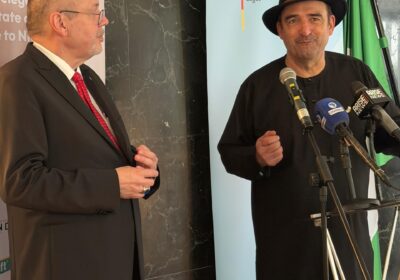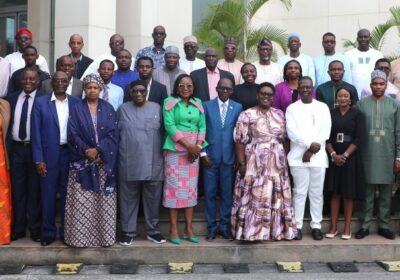ECOWAS:Advancing Economic Sovereignty, Regional Cooperation, a Model for Regional Renewal and Development.
By Raymond Enoch
In an era where Africa’s economic transformation is gaining momentum, the Economic Community of West African States (ECOWAS) is strengthening its commitment to economic sovereignty, regional cooperation, and integration.
With strategic partnerships involving GIZ, India, the European Union (EU), and the United Nations (UN) system and multiple international Strategic institutions, the ECOWAS Commission is working to build a robust development model that enhances prosperity and stability in the region.

As West African nations face economic vulnerabilities, the push for self-reliance and sustainable development has never been more urgent now.
Paradigm News notes key priorities to include reducing external dependency, fostering intra-regional trade, and accelerating industrialization to drive economic sovereignty and much needed regional Integration.
Economic sovereignty within ECOWAS states implies reducing reliance on foreign aid and commodities exports while strengthening regional industries and financial autonomy. The region has made strides in this direction, with initiatives such as:
The ECOWAS Single Currency (Eco): A long-term plan to establish a unified monetary system, reducing dependence on external currencies.
Industrial Development Programs: Promoting local manufacturing and value addition to raw materials.
The ECOWAS Common External Tariff (CET): Designed to create a uniform trade environment and protect regional industries.
Despite these efforts, challenges such as inconsistent national policies, currency instability, and limited infrastructure investment persist. However, with strategic partnerships, ECOWAS is working to bridge these gaps.
Regional Cooperation: The Driving Force of Development
ECOWAS member states recognize that economic sovereignty cannot be achieved in isolation. Regional cooperation is essential for addressing security challenges, trade barriers, and economic disparities. Several key initiatives highlight this collaborative approach:
The ECOWAS Trade Liberalization Scheme (ETLS) has continued to be enhancing free trade by eliminating tariffs on locally produced goods.
The West African Power Pool (WAPP): Facilitating electricity sharing across the region to ensure energy security.
Cross-border infrastructure projects Such as the Abidjan-Lagos Corridor Highway, aimed at boosting trade and mobility.To sustain these efforts, ECOWAS has strengthened partnerships with global development agencies.
International partnerships are critical in driving ECOWAS’ economic agenda. Some of the key collaborations include: GIZ (Germany): Supporting capacity-building, renewable energy, and governance programs in the region.India: Investing in technology transfer, trade, and capacity-building initiatives, particularly in agriculture and manufacturing.
European Union (EU): Funding infrastructure projects, economic governance programs, and peace-building efforts. United Nations System: Providing technical support for sustainable development, human rights, and humanitarian interventions.
These partnerships have contributed significantly to ECOWAS’ progress in economic resilience, security, and infrastructure. However, ensuring long-term sustainability requires stronger policy harmonization and institutional frameworks.
Available information to Paradigm News indicates that ECOWAS Commission is working towards a fully integrated economic bloc that aligns with the African Continental Free Trade Area (AfCFTA). The roadmap for regional integration includes:
Economic Diversification: Shifting from raw material exports to high-value industries such as agro-processing and digital technology.
Policy Harmonization: Aligning national policies with ECOWAS frameworks to ensure consistency in trade, security, and financial regulation.
Institutional Strengthening: Enhancing the capacity of ECOWAS institutions to monitor and enforce agreements.
Public-Private Partnerships (PPPs): Encouraging investment in infrastructure, innovation, and job creation.
ECOWAS stands at a crucial crossroads where economic sovereignty, regional cooperation, and strategic integration can define the future of West Africa. With continued commitment from member states and strengthened partnerships with global stakeholders such as GIZ, India, the EU, and the UN, the region has the potential to become a model for sustainable regional development.
To realize this vision, political will, good governance, and effective implementation of policies must be prioritized. By embracing collective responsibility, ECOWAS can transform challenges into opportunities, setting a precedent for economic resilience and self-reliance in Africa








